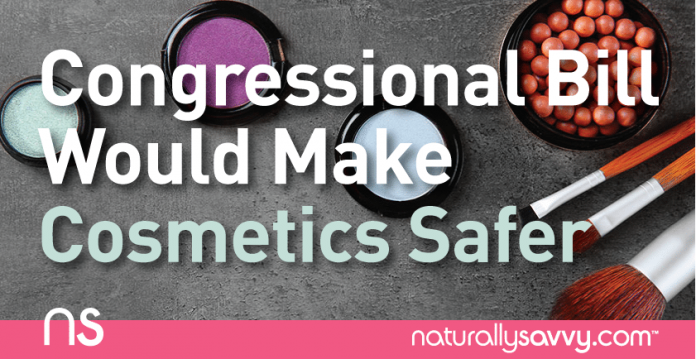
Women love cosmetics. The average woman uses 12 different cosmetic products containing 168 different ingredients. American women are particularly vulnerable when it comes to cosmetics. The federal agency tasked with regulating cosmetics, the Food and Drug Administration (FDA) does not have much authority to actually do so.
Read about the dangers in cosmetics
There is a bill languishing in Congress that could fix that problem. The Personal Care Products Safety Act would give more authority to the FDA. It would amend the federal Food, Drug and Cosmetic Act, a bill that was first signed into law in 1938.
The bill would require cosmetic companies to register their facilities with the FDA and submit their product’s ingredients to the federal agency. It would allow the FDA to stop a cosmetic product’s distribution if it determines that there is a “reasonable probability of causing serious adverse health consequences.” And if other products made at the same facility may be affected, the FDA could stop their distribution by suspending the facility’s registration.
The bill would require the FDA every years to review the safety of at least five cosmetic ingredients. It would allow the FDA to inspect a company’s cosmetic safety records, develop manufacturing standards that are “consistent with existing national and international standards,” and recall a product that is likely to cause serious health consequences.
The Food, Drug and Cosmetic Act is outdated and allows chemicals to be used in cosmetics that have been linked to cancer, birth defects and other illnesses and diseases. Unlike drugs, cosmetic products are not subject to pre-market approval authority from the FDA. The exception is color additives. Companies also are not required to share their safety information with the federal agency. The onus is on cosmetic firms to prove their claims that their products and the ingredients in them are safe before marketing. The FDA even lacks the authority to recall chemicals from the market that are proven to be hazardous.
Read about the effects of petroleum on skin
Canada and the European Union have much stricter regulations of cosmetics than the U.S. does. Health Canada is the federal agency charged with regulating cosmetics in Canada. The Canadian government has a Cosmetic Ingredient Hotlist with chemicals that are either banned or restricted from use in cosmetics, which includes formaldehyde, triclosan, selenium, nitrosamines and 1,4-dioxane. All five chemicals are allowed to be used in U.S. cosmetics.
The 28 countries that make up the EU adopted the EU Cosmetics Directive in 2003 and updated it in 2013. It banned 1,328 chemicals from being used in cosmetics that have known health risks. Among the list of chemicals banned for use in cosmetics is petroleum, which is commonly used in personal care products in the U.S. Petroleum is a known carcinogen. In other words, it can cause cancer.
Check out Andrea's Pads on Fire Video
A petition by the Environmental Working Group urges the Senate to support the Personal Care Products Safety Act. “Legislation requiring cosmetic safety is long overdue,” the petition states. Indeed it is.




